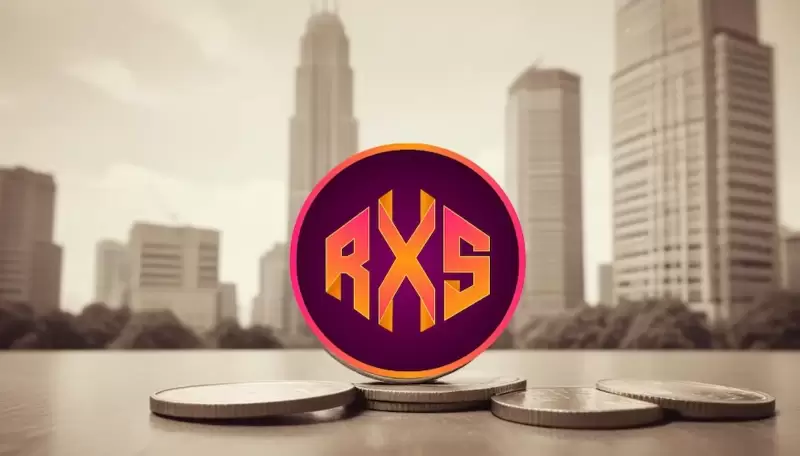 |
|
 |
|
 |
|
 |
|
 |
|
 |
|
 |
|
 |
|
 |
|
 |
|
 |
|
 |
|
 |
|
 |
|
 |
|
Cryptocurrency News Articles
SEC Places Heavier Scrutiny on Binance's Token Listing, Trading Process in Proposed Amended Complaint
Sep 16, 2024 at 07:00 pm
The SEC filed its proposed amended complaint against Binance on Thursday with a greater emphasis on the exchange's token listing process.

The U.S. Securities and Exchange Commission (SEC) has filed a proposed amended complaint in its lawsuit against crypto exchange Binance, adding detail to its allegations about the exchange's listing and trading of various tokens – including BNB, its native coin – and how the regulator thinks the company promotes investments in these tokens.
The SEC first sued Binance in June 2023, alleging the exchange was operating as an unregistered broker, clearinghouse and trading venue, offered unregistered securities through BNB and the BUSD stablecoin, as well as its staking service. Binance, Binance.US (otherwise known as BAM Trading) and Binance executives moved to dismiss the lawsuit. Judge Amy Berman Jackson, in a June 2024 ruling, dismissed charges tied to Binance's Simple Earn product and secondary BNB sales, but allowed most of the SEC's charges to proceed.
However, in a July 2024 hearing, attorneys went back-and-forth over whether the judge's ruling meant that 10 cryptocurrencies the SEC alleged were also sold as unregistered securities were still part of the case.
The SEC filed the proposed amended complaint at a court-ordered deadline; Binance has until Oct. 11 to oppose the motion.
A redline version of the proposed amended complaint walks through the differences, showing far more detail on the SEC's allegations about Binance's listing of various tokens and how the regulator thinks the company promotes investments in these tokens.
One line adds that in addition to some cryptocurrencies being native to a specific blockchain, others may be built on top of blockchains. Another line clarified that proof-of-stake networks still reward validators like proof-of-work networks.
The proposed filing also adds "initial exchange offerings" to its section on initial coin offerings.
One substantial addition alleges that Binance is "an integral part of the markets for crypto assets, including those that are offered and sold as securities, and Binance fills these markets with information republishing and amplifying the issuer and promoter statements and activity."
The filing adds other paragraphs focusing on Binance's own role in allegedly promoting digital assets it lists and trades.
The filing emphasizes the SEC's allegation that BNB is a token that is offered and sold as a security, and the exchange's customers, employees and investors share this expectation.
"Binance has offered and sold BNB as an 'exchange token,' marketing it to investors as an investment in the success of the Binance.com Platform and touting the potential returns that investors could expect from a potential increased demand and price for BNB as the platform grew," the filing said.
Binance's BNB burns and its support of projects that use BNB are also designed to help the token increase in value, the SEC alleged.
Binance paid U.S. employees, including BAM Trading (Binance.US) executives, in BNB, the SEC alleged.
"In internal Binance town halls, Zhao frequently touted Binance’s ETOP [employee token option plan] as essentially equivalent to employee stock options – i.e., as a direct way for employees to share in any profits from the growth of the Binance.com Platform and the Binance enterprise," the filing alleged.
The filing goes into similar additional detail around Binance Simple Earn and the 10 digital assets – SOL, ADA, MATIC, FIL, ATOM, SAND, MANA, ALGO, AXS and COTI – it alleges were sold as unregistered securities on the Binance platform.
"As part of their business practices and provision of intermediary services, Binance and BAM Trading promote the Ten Crypto Assets as attractive investments for their customers, including by amplifying and reinforcing the promotional statements and activity of the crypto asset issuers and promoters," the filing said.
Binance and the issuers of the tokens provide "selective information" to encourage Binance's customers to invest in the tokens, the SEC alleged, using screenshots of Binance's Solana page as an example.
"When Binance and BAM Trading approve a listing of a crypto asset, they typically negotiate and enter into agreements with the crypto asset issuers that impose various requirements on the issuer to incentivize trading by customers of the Binance Platforms," the filing said.
Other pages on Binance's website, like its explanation of the term "tokenomics," also refers to tokens' market value and "equate the purchase and sale of crypto assets to trading in the traditional securities markets," the filing said.
Token issuers have similarly touted their teams' efforts, the SEC alleged.
In its proposed amended complaint motion, the SEC said it was doing away with the phrase "crypto asset securities," saying in a footnote that the agency "is not referring to the crypto asset itself as the security."
Rather, the SEC said it "regrets any confusion it may have invited" by using the phrase to refer to "the full set of contracts, expectations and understandings centered on the sales and distributions" of whichever digital assets were at question.
"As the Court explained, the crypto asset is
Disclaimer:info@kdj.com
The information provided is not trading advice. kdj.com does not assume any responsibility for any investments made based on the information provided in this article. Cryptocurrencies are highly volatile and it is highly recommended that you invest with caution after thorough research!
If you believe that the content used on this website infringes your copyright, please contact us immediately (info@kdj.com) and we will delete it promptly.
-

-

-

-

-

-

-

- Brazil Greenlights the World's First XRP ETF, the DTX Exchange Token Surges More Than 800%
- Feb 23, 2025 at 11:10 pm
- With its upcoming listing poised to capitalize on shifting investor strategies, this $0.18 altcoin emerges as a focal point for traders balancing short-term pressures with long-term potential.
-

- Rexas Finance (RXS) Token Presale: A Revolutionary RWA Tokenization Platform Poised to Lead the Altcoin Season of 2025
- Feb 23, 2025 at 11:00 pm
- As Ethereum shows a super bullish setup, signaling the potential beginning of an altcoin season, Rexas Finance is transforming DeFi through a safe method of real-world asset tokenization
-


























































